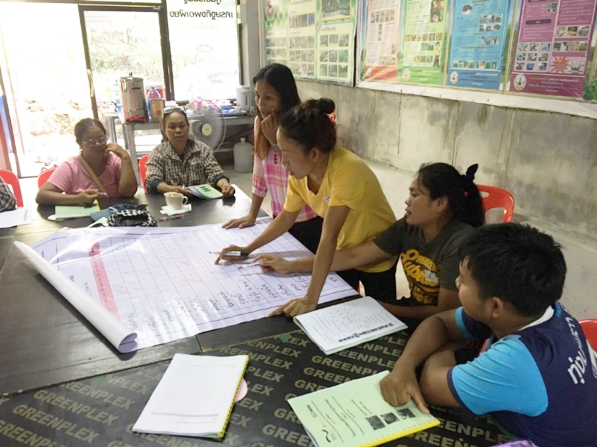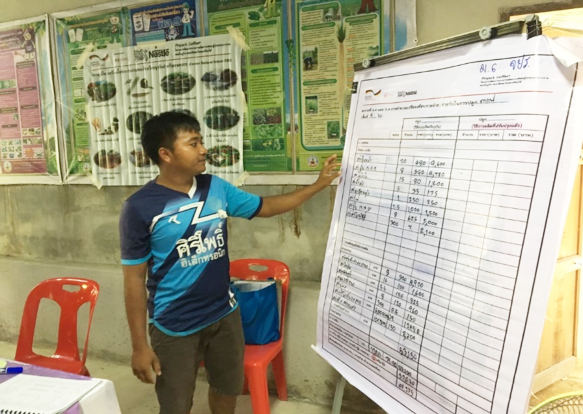
Writer: Weerinpat Janewatanakul, Operations Manager, Improving Smallholder Coffee Farming Systems in Southeast Asia (Coffee+)
Robusta coffee growers in Southern Thailand under the Improving Smallholder Coffee Farming Systems in Southeast Asia (Coffee+) Project now know how to calculate their plantation areas to earn more incomes.
Pongsak Changthong, a local coffee grower in his 30s, never realized that his coffee plantation made up only 4 rai1 out of his whole 10 rai plantation areas until he attended classes of the learning-by-doing Farmer Business School (FBS).
He was one among 19 southern farmers grinning from ear to ear with better plantation plans after participating in the training in Kra Buri district of Ranong, one of Thailand’s coffee growing provinces between May 7 and 8, 2019.
This time, they were introduced to the module named “Knowing your Assets”, one of the 12 modules, which urged them to calculate area of their coffee plantations.
“This module really helps me understand better how to calculate the plantation areas,” said Mr. Pongsak, who has planned to improve his farm planning and record keeping which will result in decreased cost of farming and higher productivity volume.
Apart from the coffee beans, Mr. Pongsak grows potential alternative crops such as durian and betel nut since the mixed-crop farming is proving a boon for him.
According to the module, when famers know precisely how much area are used for what types of plantation, they can accurately calculate investment costs such as fertilizers, synthetic pesticides, and labor costs.
Through the basic finance and proper record keeping knowledge and skills, they can save up some unnecessary investment costs.
Besides, they can make better plan of how to use the plantation areas for the maximum benefits.
The Farmer Business School (FBS) modules are developed by the Deutsche Gesellschaft für Internationale Zusammenarbeit (GIZ) GmbH.
The modules are adjusted to local context by the Coffee+ Project and jointly organized by Nestle SA.
It aims to develop a business mindset among farmers, equip them with essential entrepreneurial knowledge and skills and cultivate financial discipline among the farmers.
After completing the training, the farmers would be able to view the coffee farming as a business.
Mr. Pongsak was among the participating farmers of a public-private partnership project.
In Southern Thailand alone, the project has reached up to 2,000 Robusta coffee growers.
1 6.25 rai is equal to 1 hectare

